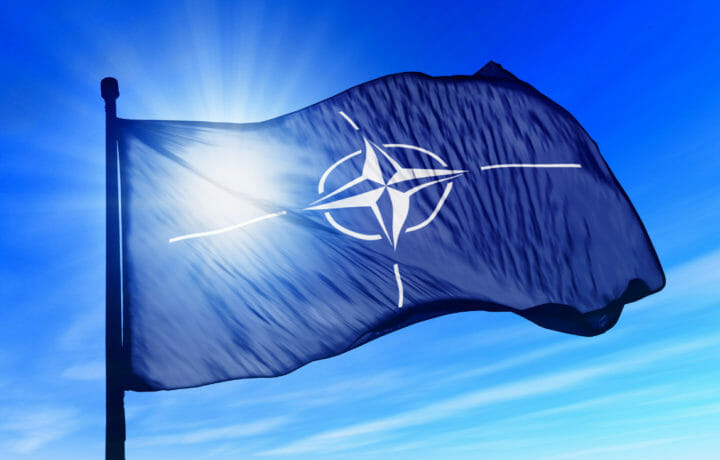Poland invokes NATO’s Article 4 as a result of 19 Russian drones that swarmed Polish airspace on September 9. Moscow is testing NATO’s eastern flank. This incursion, the boldest since 2022, will also test NATO’s resolve.
At 11:30 p.m. CEST, 19 Russian Shahed drones launched from sites in Russia and Belarus penetrated eastern Poland amid Moscow’s largest aerial assault on Ukraine. Polish F-16s, Dutch F-35s, Italian AWACS surveillance aircraft, NATO Multi-Role Tanker Transports and German Patriot batteries engaged the swarm, shooting down eight UAVs. Warsaw Chopin and three regional airports closed, shelter-in-place alerts were issued in border provinces, and debris from one drone damaged a home in Wyryki Wola. This constitutes Moscow’s first direct drone strike on NATO territory since 2022.
Poland’s Reaction
Early on September 10, Prime Minister Donald Tusk declared the attack “an act of aggression that posed the closest threat to our security since World War Two” and formally invoked Article 4 of the Washington Treaty. Article 4 obliges all 32 allies to consult when any member’s “territorial integrity, political independence or security” is threatened, without automatically triggering collective defence under Article 5. For Warsaw, the move secured immediate political backing, intelligence-sharing and a united deterrent message to Moscow.
Poland and its allies insist that strong words must yield concrete actions:
- Deploy semi-permanent ground-based air-defence batteries along Poland’s eastern border
- Fast-track delivery of the SkyCTRL counter-UAV system and other anti-drone technologies
- Expand NATO air-policing patrols over the Baltic Sea and rotate additional Patriot units eastward
- Conduct regular joint exercises simulating cross-border drone incursions
NATO’s Action
NATO Secretary General Mark Rutte praised the “quick and skillful response” of Allied forces, noting that air defences “did exactly what they are designed to do.” He stressed that last night’s breach “is not an isolated incident” and reaffirmed that Allies “will defend every inch of NATO territory.” Citing conclusions from the Hague Summit, he urged partners to “invest more in our defence, ramp up production” and sustain support for Ukraine, whose security is “interlinked with our own.”
U.S. Lawmakers Call Out
U.S. lawmakers have echoed these calls. Senator Dick Durbin (D-IL) warned that President Putin is “testing NATO resolve,” while Congressman Joe Wilson (R-SC-2) labeled the breach an “act of war.” Their bipartisan alarm underscores Washington’s stake in preventing further hybrid attacks on Alliance territory.
Kremlin’s Disinformation Playbook Activated
Moscow’s immediate response blended denial with diversion. Russia’s Defense Ministry insisted its strikes targeted only Ukrainian military sites, while Belarus blamed navigational errors and electronic warfare jamming. Ukraine’s Center for Countering Disinformation has debunked these claims, “Such statements are not true and are a typical tactic of Russian propaganda, which tries to justify all its crimes against the civilian population of Ukraine.”
To preempt Kremlin propaganda, Poland and NATO can be expected to deploy rapid-response fact-checking teams and release declassified radar tracks, engagement footage, and pilot transcripts through coordinated press briefings and official portals—locking in the factual record before falsified narratives can spread. This anticipatory posture aligns with the NATO Secretary General’s statement, which affirms the alliance’s commitment to transparency, unity, and operational clarity.
NATO’s North Atlantic Council
As the North Atlantic Council continues its Article 4 deliberations, NATO stands at a crossroads. A robust, integrated response that melds enhanced defences, sustained political unity and unwavering transparency will reaffirm the Alliance’s fundamental promise: an attack on one is an attack on all. Anything less risks emboldening further Russian probes, shattering deterrence, and fracturing cohesion along Europe’s eastern frontier.




